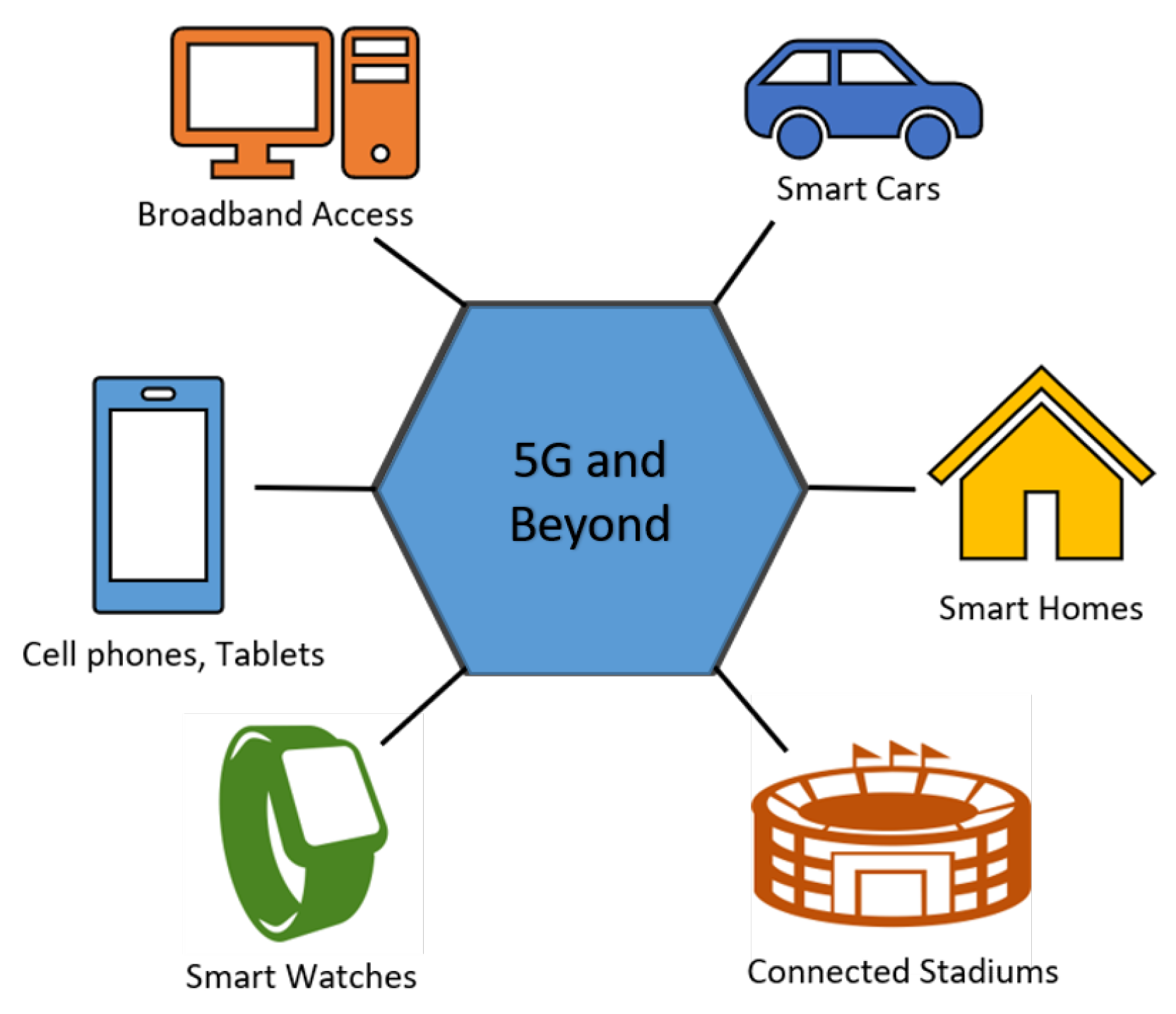5G and beyond promise faster speeds, lower latency, and greater connectivity. These advancements will revolutionize various industries.
5G technology introduces remarkable improvements in speed, connectivity, and efficiency, setting the stage for technological innovations. It enables faster data transfer, reducing latency significantly. Industries like healthcare, automotive, and entertainment stand to benefit from this leap forward. The Internet of Things (IoT) will flourish, connecting more devices seamlessly.
Beyond 5G, future networks will focus on even greater speeds and reliability, pushing the boundaries of current technological limits. These advancements will drive smart cities, autonomous vehicles, and advanced robotics. The evolution from 5G to next-generation networks represents a monumental shift, impacting both everyday life and industrial processes.
The Dawn Of 5g
The world stands on the brink of a new technological era. 5G technology promises to transform how we connect and communicate. This fifth-generation network offers faster speeds and more reliable connections.
Revolutionizing Communication
5G changes the way we communicate. It provides ultra-fast data speeds and low latency. This means video calls are clearer and more immediate. Streaming movies and games feels seamless. IoT devices can talk to each other instantly.
Key Features And Benefits
- Faster Speeds: Download and upload speeds are lightning-fast.
- Low Latency: Near-instant response times improve real-time applications.
- Increased Capacity: More devices can connect at once without slowing down.
- Enhanced Reliability: Stronger, more stable connections, even in crowded areas.
- Energy Efficiency: Devices use less power, extending battery life.
| Feature | Benefit |
|---|---|
| Faster Speeds | Quick downloads and uploads |
| Low Latency | Instant responses |
| Increased Capacity | More devices connected |
| Enhanced Reliability | Stable connections |
| Energy Efficiency | Longer battery life |
5G is not just faster. It is smarter. The network can handle more devices efficiently. This means smart homes and cities become more practical. 5G is a leap forward in technology. It opens up new possibilities for the future.

Credit: www.mdpi.com
Core Technologies Behind 5g
The fifth generation of wireless technology, known as 5G, represents a significant leap forward. It promises faster speeds, lower latency, and more connections. But what makes 5G so powerful? Let’s explore the core technologies behind 5G.
Enhanced Mobile Broadband (embb)
Enhanced Mobile Broadband (eMBB) focuses on delivering faster internet speeds. It supports high-definition streaming and virtual reality. eMBB ensures a seamless experience, even in crowded areas like stadiums. It also enables quicker downloads and uploads.
- Faster internet speeds
- High-definition streaming
- Virtual reality
- Seamless experience in crowded areas
- Quicker downloads and uploads
Massive Machine Type Communications (mmtc)
Massive Machine Type Communications (mMTC) connects billions of devices. It is ideal for the Internet of Things (IoT). mMTC allows smart homes, smart cities, and industrial automation. It can handle large numbers of low-power devices.
- Connects billions of devices
- Ideal for IoT
- Smart homes and cities
- Industrial automation
- Handles low-power devices
Ultra-reliable Low Latency Communications (urllc)
Ultra-Reliable Low Latency Communications (URLLC) ensures a dependable connection. It supports critical applications like remote surgery and autonomous vehicles. URLLC offers ultra-low latency, which means almost no delay. It is crucial for real-time data transmission.
- Dependable connection
- Supports remote surgery
- Autonomous vehicles
- Ultra-low latency
- Real-time data transmission
5g Deployment: Global Landscape
The roll-out of 5G technology is reshaping the world. Countries are racing to deploy this high-speed network. The impact is vast, from faster internet to smart cities.
Pioneering Countries And Regions
Several countries lead in 5G deployment. These include South Korea, the USA, and China. They have set benchmarks for others to follow.
| Country | Key Achievements |
|---|---|
| South Korea | First to launch nationwide 5G |
| USA | Major cities covered with 5G |
| China | Largest number of 5G base stations |
Challenges And Solutions
Deploying 5G faces several challenges. One major issue is high infrastructure costs. Building new towers and laying cables is expensive.
Another challenge is spectrum allocation. Governments must allocate frequency bands for 5G use.
Solutions include public-private partnerships. Sharing infrastructure can reduce costs. Efficient spectrum management is also key.
- Public-private partnerships
- Infrastructure sharing
- Efficient spectrum management
Impact On Industries
The advent of 5G technology promises to revolutionize various industries. With faster speeds, lower latency, and increased connectivity, 5G is set to bring transformative changes. Below are some key industries that will be impacted significantly.
Transforming Healthcare
5G technology can change the face of healthcare. Remote surgeries will become possible with real-time video streaming. Telemedicine can reach rural areas with low latency and high-quality connections. Wearable devices will monitor health conditions continuously and send data to doctors instantly. This technology ensures faster diagnosis and immediate treatment.
Revolutionizing Manufacturing
In manufacturing, 5G enables smart factories. Machines can communicate without delays, leading to higher efficiency. Robots and automated systems will work more accurately. Predictive maintenance will reduce downtime by anticipating machine failures. Supply chains will become more transparent and agile.
New Horizons In Entertainment
The entertainment industry will see new possibilities. Virtual Reality (VR) and Augmented Reality (AR) experiences will be smoother and more immersive. Live streaming of events will have no buffering issues. Gaming will reach new levels with real-time interactions and cloud gaming services.
| Industry | Impact of 5G |
|---|---|
| Healthcare | Remote surgeries, telemedicine, wearable devices |
| Manufacturing | Smart factories, predictive maintenance, transparent supply chains |
| Entertainment | VR/AR experiences, live streaming, cloud gaming |
These are just a few examples of how 5G will impact various industries. The possibilities are endless, and the future looks bright with 5G technology.
5g And Iot: A Symbiotic Relationship
The 5G network is revolutionizing the Internet of Things (IoT). This new synergy brings faster speeds and lower latency. IoT devices can now communicate more effectively. This symbiotic relationship enhances many sectors.
Smart Cities And Smart Homes
Smart cities use 5G to connect various devices. Streetlights, traffic signals, and sensors all become smarter. This improves energy efficiency and reduces costs. Smart homes also benefit from 5G. Devices like thermostats and security cameras work faster and better. This makes homes safer and more convenient.
Industrial Iot (iiot)
The Industrial IoT (IIoT) relies on 5G for real-time data. Factories can monitor machines and predict failures. This reduces downtime and saves money. Robots in factories become more efficient. They can communicate instantly with each other. This improves productivity and quality.
| Sector | Benefits of 5G |
|---|---|
| Smart Cities | Enhanced connectivity, reduced costs, improved energy efficiency |
| Smart Homes | Faster devices, improved security, increased convenience |
| Industrial IoT | Real-time data, reduced downtime, efficient robots |
- Faster speeds enable better communication between devices.
- Lower latency ensures real-time responses.
- Enhanced connectivity supports more devices.
- Smart cities become more efficient with 5G.
- Smart homes become safer and more convenient.
- Industrial IoT improves factory productivity.
Beyond 5g: The Road To 6g
The world is already experiencing the wonders of 5G technology. Faster speeds, lower latency, and greater connectivity are now part of our daily lives. But what comes next? The journey to 6G promises even more exciting advancements. Let’s explore what lies ahead.
Predicting The Next Leap
6G is expected to be a game-changer. It will bring even faster speeds and more reliable connections. Experts predict that 6G networks will offer speeds up to 100 times faster than 5G. This leap in technology will revolutionize many industries.
Imagine downloading a full-length movie in just seconds. Or having real-time holographic communications. These are just a few possibilities with 6G.
Potential Technologies And Capabilities
6G will integrate several cutting-edge technologies. Here are some of the most promising:
- Artificial Intelligence (AI): AI will optimize network performance and manage data traffic efficiently.
- Terahertz Waves: These waves will enable ultra-fast data transfer rates.
- Quantum Communications: This will provide unparalleled security and encryption.
6G will also enhance the Internet of Things (IoT). Billions of devices will connect seamlessly, creating smarter cities and homes.
Let’s look at some potential capabilities of 6G:
| Capability | Description |
|---|---|
| Ultra-Low Latency | Near-instantaneous data transmission for real-time applications. |
| Massive Connectivity | Support for billions of connected devices. |
| Enhanced Security | Advanced encryption and quantum cryptography for safer networks. |
6G will transform many sectors. Healthcare, education, transportation, and entertainment will all benefit from this technology. The road to 6G is exciting and full of potential.
Challenges Ahead
The journey to 5G and beyond brings many challenges. These challenges need proper attention for the technology to succeed. They include security concerns, infrastructure needs, and investment issues.
Security And Privacy Concerns
5G networks aim to connect many devices. This increases the risk of cyber-attacks. Hackers find more targets in a vast network. Protecting data becomes harder but more important.
Privacy is also a big concern. Personal information can be at risk. Encryption and secure protocols must be in place to protect users. Ensuring user consent for data usage is vital.
Infrastructure And Investment
Building the 5G network requires a lot of infrastructure. Towers, small cells, and fiber optics need installation. This process is time-consuming and expensive.
Investment is crucial for 5G success. Governments and private sectors must invest heavily. Funding is needed for research, development, and deployment.
| Challenge | Requirement |
|---|---|
| Security | Encryption, Secure Protocols |
| Privacy | User Consent, Data Protection |
| Infrastructure | Towers, Small Cells, Fiber Optics |
| Investment | Funding, Research, Development |

Credit: link.springer.com
Embracing The Future Of Connectivity
The future of connectivity is bright with 5G and beyond. 5G technology promises faster speeds, lower latency, and more reliable connections. This is just the beginning. The evolution to 6G and other advancements will bring even more possibilities.
Preparing For A Connected World
5G is already changing how we live and work. It supports smart cities, remote healthcare, and autonomous vehicles. To benefit, we need to be ready.
- Upgrade existing infrastructure.
- Invest in new technologies.
- Train workers in 5G-related skills.
Businesses need to adapt to the new opportunities. Consumers will enjoy enhanced experiences. Governments must support development with strategic policies.
The Role Of Policy And Regulation
Policies and regulations play a crucial role in the rollout of 5G. They ensure fair access and promote innovation. Effective policies can help address the digital divide.
| Aspect | Role |
|---|---|
| Spectrum Allocation | Ensure enough spectrum for 5G services. |
| Cybersecurity | Protect networks from attacks. |
| Privacy | Safeguard user data and privacy. |
International cooperation is vital. Countries need to work together. This will ensure global standards and interoperability.

Credit: www.linkedin.com
Frequently Asked Questions
What Is 5g Technology?
5G technology is the fifth generation of mobile networks. It offers faster speeds, lower latency, and greater capacity compared to 4G.
How Does 5g Improve Internet Speed?
5G improves internet speed by using higher frequency bands. This allows for faster data transmission and reduced congestion.
What Are The Benefits Of 5g?
5G benefits include faster downloads, real-time communication, and enhanced connectivity. It also supports advanced technologies like IoT and smart cities.
Is 5g Available Everywhere?
No, 5G is not available everywhere. Its rollout is gradual and depends on infrastructure and regulatory approvals.
Conclusion
The future of 5G technology looks promising and transformative. Its potential extends beyond faster internet speeds. Embracing 5G will revolutionize industries, enhance connectivity, and drive innovation. Stay updated with 5G advancements to harness its full potential. The journey into the 5G era is just beginning, and its impact will be profound.

